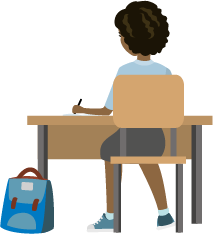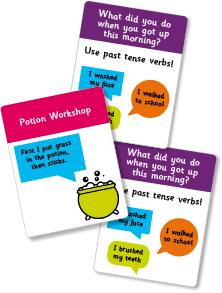Your questions answered
The COVID-19 pandemic has placed constraints on the way support can be delivered to children with Speech, Language and Communication Needs. Getting back on track will require thought, creativity and dedication; attributes that teachers have in abundance!
There will have been uncertainty about how schools will look in September 2020. Both teachers and pupils alike will need time to feel safe and comfortable whilst adjusting to their return to school. Safety and wellbeing underpin learning and these cornerstones are crucial.

Should I test or retest using our speech and language assessments?
We recommend annual testing in the Autumn term and this should go ahead as planned, with some allowance for resettling to the environment. This will help to form a baseline from which to set targets and track progress for the rest of the academic year.
Should I redo the last scheme of work?
It would be worthwhile revisiting previous schemes of work as a recap to moving forward. If these are likely to form the basis of future learning, it may benefit learners to consolidate their knowledge before they build on it. This could be completed in smaller groups. Paired learning with peers, who have more securely consolidated previous work, can also be hugely beneficial.
What about language groups?
Language groups are a proven way to support children with SLCN. Here are some ideas for adapting groups to the current situation:
- Keep group sizes small, selecting pupils in the same class or bubble. More secure language users are good models for others.
- Adapt games to gross motor, physical activities which lend themselves better to social distancing measures.
- Enlarge copies of resources for socially distanced learning, or provide pupils with their own set.
- If group times need to be shortened, keep warm-up and review activities, and carry out just one language activity.
- Special transition sessions, to introduce new rules and recap sessions of previous learning, would be beneficial.
- Try using stamping and drawing activities, instead of shared toys and activities, so pupils can use individual sets of resources.
Staffing, timetabling and space are likely to be factors in determining what can feasibly be provided.
Whilst more language groups are beneficial, it’s useful to remember that language learning can (and should!) take place in all parts of school life. Be mindful that time spent in language intervention groups is time not spent in the classroom, and time spent supporting language in the classroom is hugely beneficial, for practising and generalising the skills that children have been learning in their language groups, so that they develop good functional communication skills.
What else can we do as a school?
We know there will be hurdles to supporting children with SLCN on their return to school.
But where there is a will, there is a way to make it work in your school.
Here are a few ideas to consider:
- Parents on board. Many parents want to be involved in supporting their children, but struggle to know where to start or where to go next. The Speech Link SLCN Parent Portal can help, with lots of activities that families can do at home.
- Consider an online workshop, where parents can carry out an activity with their children using target language. For example, an online ‘Potion Workshop’.
- Playground learning. A break from being in the classroom can still be fun with a more learning-based activity in the playground. A ‘word wall’ or ‘words of the week’ for topic-based vocabulary, or an outdoor reading corner, can be ways to encourage learning to continue in the playground, in a more informal way.
- Peer partners. Older children feel an immense sense of pride and responsibility when given a special task. ‘Playground language Champions’ can facilitate socially distanced games which encourage communication.
- Conversation prompts. Conversation starter posters are a great way of facilitating talking between children and their peers, teachers and parents/caregivers. Include target words that children can use in their questions and responses.

We’re in this together
Visit speechandlanguage.info/parents for additional resources. Our Help Desk is available from 8.30am-5.00pm every weekday. Speech and Language Link is here to support you in any way we can.
Please login to view this content
Login